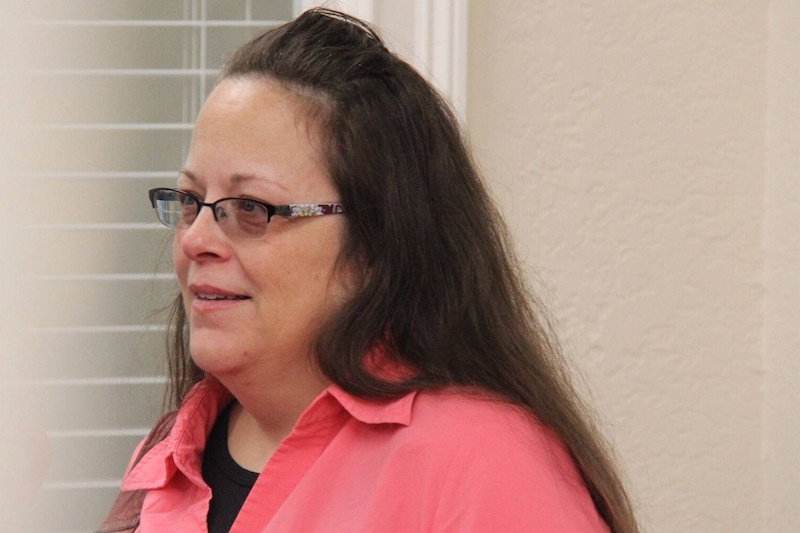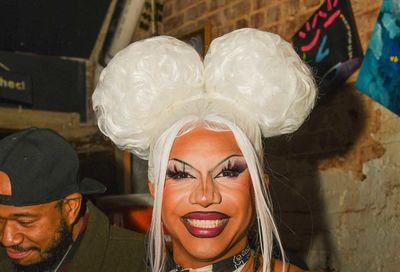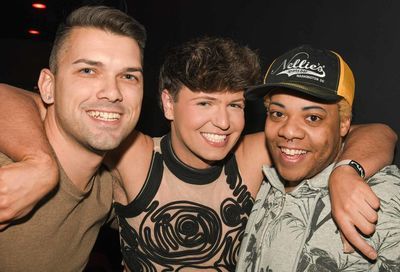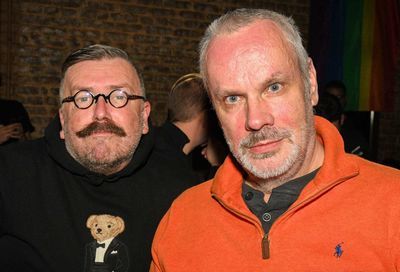Ted Cruz, Tom Cotton, other anti-LGBTQ figures top Trump’s list of potential Supreme Court picks
Trump expressed hope that if he wins re-election, he could appoint up to 4 justices to the bench over the next four years

On Wednesday, President Trump announced a slate of 20 potential nominees to the U.S. Supreme Court if a vacancy should open up in his second term, or perhaps even during the remainder of his first term.
Among the names are Republican Senators Ted Cruz (Texas), Tom Cotton (Ark.), and Josh Hawley (Mo.), former Solicitor Generals Noel Francisco and Paul Clement, Kentucky Attorney General Daniel Cameron, and Appeals Court judges James Ho of the 5th Circuit, Allison Jones Rushing of the 4th Circuit, Lawrence VanDyke of the 9th Circuit, and Amy Comey Barrett of the 7th Circuit.
In remarks made Wednesday at the White House, Trump called appointing justices to the Supreme Court “the most important decision an American president can make.”
He also expressed hope at the potential that, if re-elected this fall, he could name as many as four justices to the nation’s highest court over the next four years.
Such a development would alter the court’s makeup for an entire generation and would likely result in the striking down of any progressive legislation that attempts to curb corporate power or expand worker’s rights, reproductive rights, free speech, and LGBTQ rights.
While there is currently no vacancy on the court, the next president is expected to appoint at least one justice. Justices Ruth Bader Ginsburg and Stephen Breyer, who comprise half of the court’s liberal wing, are 87 and 82 years old, respectively, and Ginsburg has faced several health challenges in recent years. Justice Clarence Thomas, the longest-serving member, is 72.
The list is almost certain to rankle liberals and progressives, as well as reproductive rights advocates and LGBTQ advocates who have largely relied on the courts to guarantee their rights in light of inaction on the part of Congress and state legislatures.
Cruz and Cotton are some of the most right-wing members of the Senate, and both have an extensive record of comments opposing LGBTQ rights.
Hawley, who has adopted a more populist stance on economic issues and tends to be more skeptical of corporate interests, nonetheless remains a fierce social conservative.
VanDyke’s record on LGBTQ rights has been questioned by liberals who are skeptical of past writings in which he alleged that same-sex marriage harms children and that LGTBQ rights are an infringement on the religious freedom of people who believe homosexuality is wrong, can be changed, or should be outlawed.
Following his nomination, the American Bar Association rated VanDyke “not qualified” for a federal appointment and expressed concerns that he refused to commit to treating LGBTQ parties that come before him impartially.
At his confirmation hearing, Senate Democrats fiercely questioned VanDyke on his LGBTQ record, and at one point, he actually began crying. Hawley, a member of the Judiciary Committee, then assisted VanDyke by calling into question the ABA’s assessment and accusing the organization of anti-conservative bias. VanDyke insisted he held no anti-LGBTQ animus, saying that he believes “all people are created in the image of God, and they should all be treated with dignity and respect.”

Another potential nominee, 5th Circuit Court of Appeals Judge Stuart Kyle Duncan, previously worked for the Becket Fund for Religious Liberty, an organization that purports to fight for religious freedom and has been involved in cases opposing LGBTQ rights, including a case involving a T-shirt printing shop owner who was accused of violating Lexington’s nondiscrimination ordinance when he refused to print shirts for an upcoming Pride celebration.
Becket also represented Hobby Lobby in its successful challenge against the Affordable Care Act’s contraception mandate — which has significant ramifications for LGBTQ rights, in terms of how courts interpret “religious liberty.”
Rushing, who previously clerked for Supreme Court Justice Clarence Thomas and for Neil Gorsuch when he was on the 10th Circuit, was flagged by LGBTQ groups as potentially problematic when she was initially nominated for a judgeship, due to her ties to Alliance Defending Freedom, a conservative legal group with a history of anti-LGBTQ rhetoric that the Southern Poverty Law Center has classified as a “hate group.”
She also sparked fears among Democrats that she would be incapable of being impartial towards members of the LGBTQ community who came before her, based on past writings denouncing marriage equality and even court decisions that overturned anti-sodomy laws.

As Trump’s solicitor general, Francisco has been involved in a number of high-profile cases involving LGBTQ rights, arguing on behalf of the administration against recognizing LGBTQ Americans as a class that is protected from discrimination under the Civil Rights Act.
He has also argued that child placement agencies that discriminate against prospective parents, including same-sex couples, should be allowed to do so while continuing to receive taxpayer money.
Other names on the list include: Bridget Bade, a judge on the 9th Circuit Court of Appeals; Steven Engle, the assistant attorney general for the Office of Legal Counsel of the United States Department of Justice; Gregory Katases, of the U.S. Court fo Appeals for the District of Columbia Circuit; Barbara Lagoa, of the 11th Circuit Court fo Appeals; Christopher Landau, the U.S. Ambassador to Mexico; Carlos Muñiz, a Justice on the Supreme Court of Florida; Martha Pacold, of the U.S. District Court for the Northern District of Illinois; Peter Phipps, of the 3rd Circuit Court of Appeals; Sarah Pitlyk, of the U.S. District Court for the Eastern District of Missouri; and Kate Todd, the deputy assistant and deputy counsel to President Trump. As in 2016, all of Trump’s potential nominees come with a stamp of approval from the Federalist Society and other conservative activist or legal organizations.
See also: Report: 1 in 3 Trump circuit court nominees has a history of anti-LGBTQ bias
Lambda Legal criticized Trump’s list as a campaign document, accusing the president of seeking to appeal to and lock down the votes of social conservatives instead of governing.
“The Trump Administration released a new list of dangerous, ultra-conservative ideologues as potential nominees for the highest court in the land,” Sharon McGowan, legal director and chief strategy officer at Lambda Legal, said in a statement. “This list is teeming with individuals who have alarming anti-LGBTQ and anti-civil rights records, which should be disqualifying for any judicial nominee, let alone a nominee for the Supreme Court.
“Notably, the President’s ‘litmus test’ for SCOTUS nominees seems to have demanded zealous opposition to abortion and common sense gun control measures, as well as an unrelenting commitment to destroying the Affordable Care Act and a deep hostility to LGBTQ equality,” she added. “All of these positions are far outside of the mainstream, and threaten not only the legal rights but also the health and safety of LGBTQ people, everyone living with HIV, and other groups who rely on fair and impartial courts to vindicate their rights.
“President Trump’s unveiling of a list of extremists and ideologues as potential Supreme Court nominees should worry all who believe in the importance of a fair-minded judiciary,” McGowan concluded. “The impact that another anti-LGBTQ nominee could have on the Supreme Court would be catastrophic.
“For over three years, this administration has pulled out all of the stops in its attempt to weaponize our federal courts in service of a dangerous right-wing agenda and at the expense of true justice and equal rights for all. It is up to us to speak out against this assault on our system of justice, and be active participants rather than mere spectators in our democracy. We cannot count on the courts to protect us if we do not protect our courts.”
Read more:
A Trump rally speaker called for pro-LGBTQ Democrats to be murdered. People cheered.
Michele Bachmann: “Transgender Black Marxists” are seeking “the overthrow of the United States”
Republicans call gay Michigan congressional candidate a ‘pedo sex poet’
Support Metro Weekly’s Journalism
These are challenging times for news organizations. And yet it’s crucial we stay active and provide vital resources and information to both our local readers and the world. So won’t you please take a moment and consider supporting Metro Weekly with a membership? For as little as $5 a month, you can help ensure Metro Weekly magazine and MetroWeekly.com remain free, viable resources as we provide the best, most diverse, culturally-resonant LGBTQ coverage in both the D.C. region and around the world. Memberships come with exclusive perks and discounts, your own personal digital delivery of each week’s magazine (and an archive), access to our Member's Lounge when it launches this fall, and exclusive members-only items like Metro Weekly Membership Mugs and Tote Bags! Check out all our membership levels here and please join us today!




























You must be logged in to post a comment.